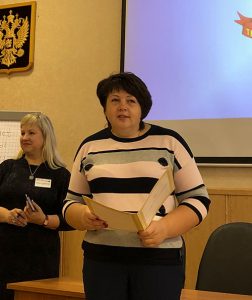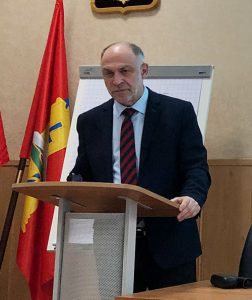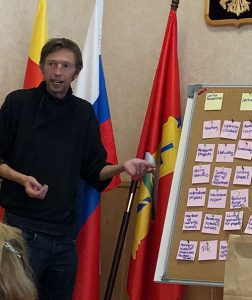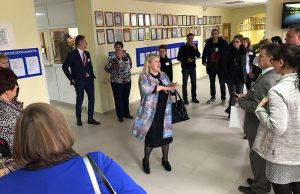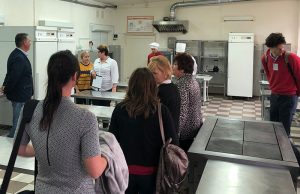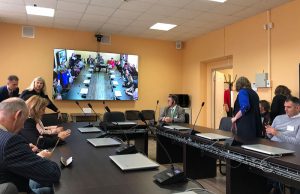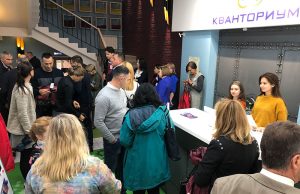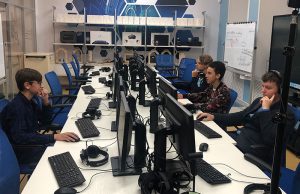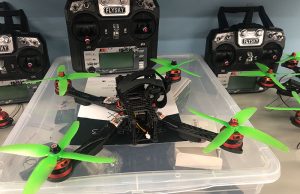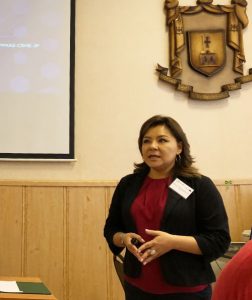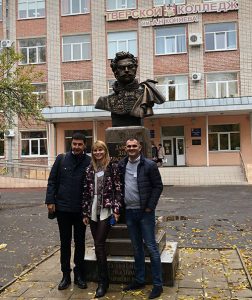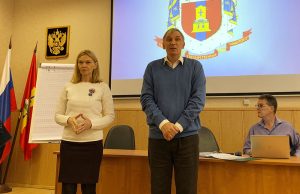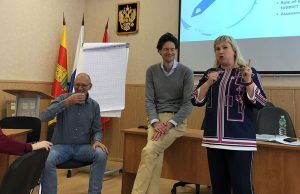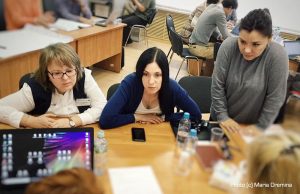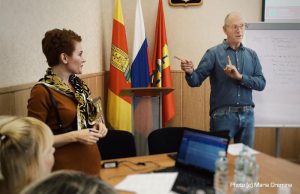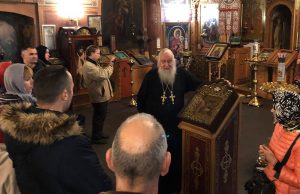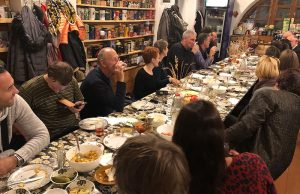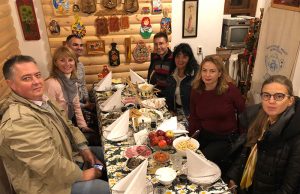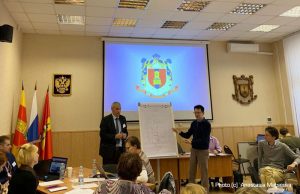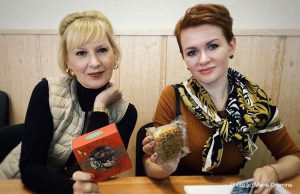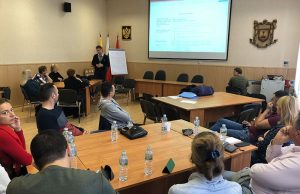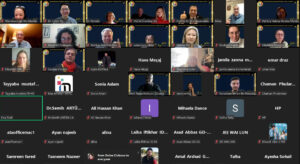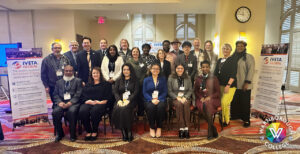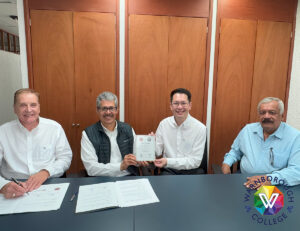The third transnational meeting for the ERASMUS+ co-funded Pro-VET project took place in Russia from September 30th to October 4th.
Tver State University (TSU) hosted the very intensive week at its campus. Members from 12 partner universities congregated in this lovely garden city which is a 2-hour journey from Moscow. Pro-VET stands for the Professional Development of Vocational Education Teachers with European Practices and is a 3-year capacity-building initiative to upskill and develop target audiences in Russia and Serbia. The main vector for this change is e-learning.
The jam-packed scheduled kicked off on September 30th with a welcome from Oksana Potapova, Head of the Department of Vocational Education of the Ministry of Education (Tver Region) and Natalia Serditova, TSU Vice-Rector of Education. Each work package leader then presented an update of their work packages and what needed to be done.
In the afternoon, trips to various vocational centres of learning such as A.N. Konyaev VET College and the Tver College of Service and Tourism were organised. These institutions although good were still very traditional in nature, bureaucratic, and probably not as effective as they could be. However, the final visit to ‘Kuantorium’ – a so-called children’s industrial park – opened everyone’s eyes. Funded by businesses and NGOs, it catered for students aged from 12 to 22. It was clear that the students not only wanted to be there, they were eager to learn. The centre boasted over 50 3D-printers of various shapes, types and abilities. The younger students were learning how to make drones and robots. Other students were involved in design or dealing with customers to customise products for them. It was extremely interesting that very few of the ‘teachers’ in the centre were pedagogically-trained, and that they were graduates of fields other than the ones they were teaching. The enthusiasm and passion was clear, from the shiny eyes of the people to the happy faces and eagerness to do things.
Day 2 was the start of the actual trainings, when TSU Vice-Rector of Research, Prof. Igor Lelchitsky, took on a more serious role this time as he spearheaded the Russian paradigm change with a presentation on the factors to be considered while implementing an e-learning system.
Dr Andreas Saniter from Universität Bremen’s Institut Technik und Bildung led a short session on expert workers.
Then, it was the turn of JAMK University of Finland to do a workshop on soft skills. Prof Eila Burns led the workshop. The day finished with a Technical Committee meeting that went on quite late.
Day 3 began with the continuation of the soft skills workshop by JAMK. An additional exercise by Dr Maria Dremina of RSVPU drove home the importance of soft skills within the TVET sector.
After a coffee break came the turn of Aeres University from the Netherlands which delved into the pedagogic bases for e-learning courses and geared at achieving specific outcomes. Prof Frank de Jong and Dr Pieter Seuneke proposed an interesting model and advocated the creation of target outcomes which could be used for the following day.
This was followed by a special visit to historically-important religious site of Zovidovo, which dates back to the time of Ivan the Terrible. The priest of the site displayed a remarkable knowledge of the history and proudly showed off an onsite museum of old Russian memorabilia, including a large bust of Stalin. Finally, everyone was treated to a hearty traditional meal in the bell tower.
Day 4 saw Warnborough College Ireland (led by Dr Julian Ng) deliver training on online course creation, with a short lesson on the history of MOOCs and VOOCs. All delegates were then encouraged to get familiar with the Canvas learning management system by participating in the online activities set up specifically for them. The session switched over to Moodle with an online lesson about mooncakes (and how to make them). Delegates were introduced to the history of the Mid-Autumn festival and how mooncakes came to be. As an added treat, everyone got to taste real mooncakes. The day wrapped up with a Technical Committee meeting and much revelry in the nearby pub after.
The final day saw partner meetings to discuss any unresolved issues and the way forward, and the agreement of an online course outline template. Despite the extremely intense and tiring schedule, firm friendships were made firmer and goodbyes became more difficult.

